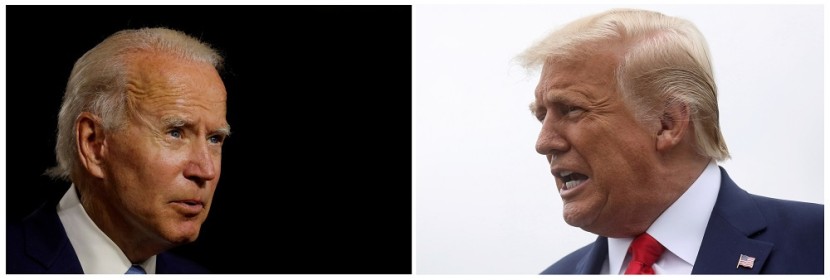
For President Donald Trump, the American Dream is on the line while Democratic candidate Joe Biden indicated his campaign is a "battle for the soul of this nation." Will their weighty rhetoric be tangible?
As the COVID-19 pandemic continues to ravage the economy, businesses and individuals need to decipher both presidential nominees' proposed tax policies.
Trump, Biden's Stand on Tax Policies
For the corporate tax rate, Republican Trump aims to maintain it at 21%. For Biden, he seeks to raise it to 28% and impose a 15% minimum tax on book income for no corporation to get away with not paying taxes.
President Trump's tax policy intentions for a second term involves a 15% capital gains rate, a tax cut for the middle class, and tax credits for companies bringing work from China back to the United States. Democratic nominee Joe Biden had a more subdued tax platform with most of his economic proposals depicted as revenue sources for health, climate, and education plans in 2019, reported EY.
Contrasting Policy Paths
Amid the 2020 presidential election's turmoil, one dynamic has remained unchanging: The November 3 election offers a selection between substantially varied policy paths.
Trump, much like other Republicans, resists tax reductions and regulatory cuts as economic necessities. In the culture wars, he distinguishes himself as a conservative champion. Biden contends that the economy cannot recuperate until COVID-19 is mitigated. He proposes sweeping federal action amid the long-term recovery to alleviate an extended recession and to address enduring wealth inequality that disproportionately impacts non-white Americans, reported Denver Post.
The Great Economic Task
In November, the person elected as the United States President would have a unique and demanding task: overseeing the US' economic recovery after a global health crisis that resulted in unemployment to cascade to levels unwitnessed since the Great Depression. According to the Internal Monetary Fund (IMF), the nation's economic output will fall 8% this 2020 after a 2.3% GDP growth in 2019.
Trump would like to establish an income tax cut and provide companies with tax credits to implement incentives to keep jobs in the country. Biden would like to increase taxes for high earners to pay for investing in public services. However, the rise will only apply to those earning more than $400,000 per year.
"President Trump has made incredible strides to lower taxes on families and help Americans keep more of their hard-earned paychecks in their pockets," according to Courtney Parella, deputy national press secretary for Trump's campaign, reported CNBC.
The former vice president suggests increasing the top individual income tax rate to 39.6% from its initial rate of 37%.
Polls Suggest the Public's Interest in Candidates' Tax Policies
According to nearly 80% of registered voters addressing the Pew Research Center, the economy was crucial in this highly-pumped election. Meanwhile, 77% of voters told YouGov that domestic issues were the most essential. The economy was the second top priority trailing behind the COVID pandemic and the response towards the outbreak.








